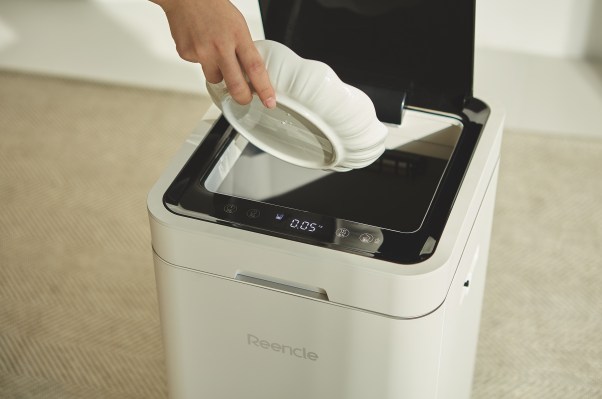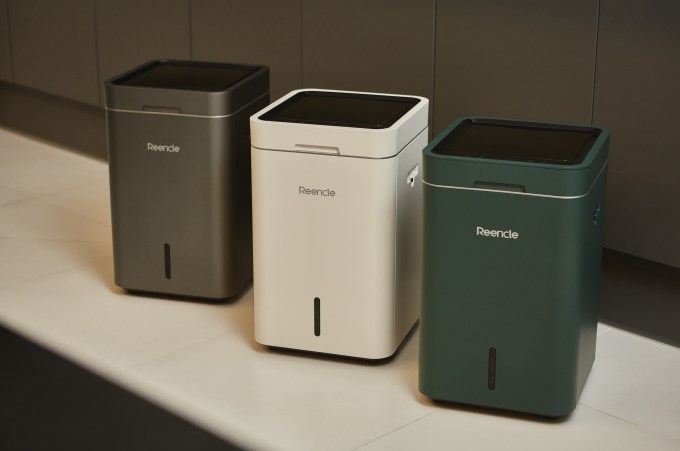ARTICLE AD

Reencle, a company that makes smart composters, claims its next device will be quieter, more energy-efficient and able to handle more food scraps than its predecessor. The upgrade, dubbed Reencle Gravity, is due out by around September of this year.
If the upcoming composter works as advertised, it’ll help households reduce their greenhouse gas emissions from food waste, while generating nutrient-rich fertilizer for gardens. However, the Gravity composter may also digest a good chunk of your income, thanks to its expected $649 price tag. Reencle announced the unreleased product at CES 2024.
Food waste is a serious climate problem in the U.S., in part because it almost always goes to landfills, where anaerobic bacteria break down waste and spew heat-trapping methane. But in a controlled, oxygen-rich environment, decomposition via composting limits methane emissions and recycles nutrients.
Owned by South Korean household product company Hanmi Flexible, Reencle is trying to make “upscale” home composting a thing. Composting itself is nothing new, and there are plenty of personal composting tools, such backyard tumblers, already on the market with varying degrees of built-in tech. Still, many of these tools demand outdoor space, time and some elbow grease in order to turn food waste into fertilizer.

The Reencle Gravity composter. Image credits: Reencle.
Reencle’s product is a bit different — it combines a sleek, Simplehuman-like exterior with automatic churning paddles and a pouch containing a type of bacteria (Bacillus Smithii) that turns waste into uncured compost under ideal conditions. Reencle also says its composters are indoor-friendly and don’t stink, however the product’s Facebook group suggests mixed results as far as odor goes. Note that you’ll probably want to cure your compost outdoors before you use it as fertilizer, and you’ll probably want to mix it with soil before gardening.
Compared to Reencle’s current composter — the $499 Reencle Prime — the pricer Gravity is apparently 4 decibels quieter (at 24dB on average) and around 10% more energy efficient over a 24-hour period (consuming an average of 1.12 kWh per day). Reencle also says the Gravity composter can handle up to 3.3 pounds of food waste per day, or 50% more than the Prime model.
Though TechCrunch has yet to test either device, it at least sounds like a solid upgrade. Still, neither device is cheap. If your primary goal in buying such a gadget is to reduce your household climate pollution, you might also want to check if your nearest city offers municipal composting, as New York, Los Angeles, Seattle, San Francisco and many others increasingly do.
Also at CES, Reencle announced an upgrade to its commercial composting machine — suitably name Mega Reencle — with a $16,200 starting price and room for 44 to 220 pounds of waste.

 10 months ago
110
10 months ago
110 

